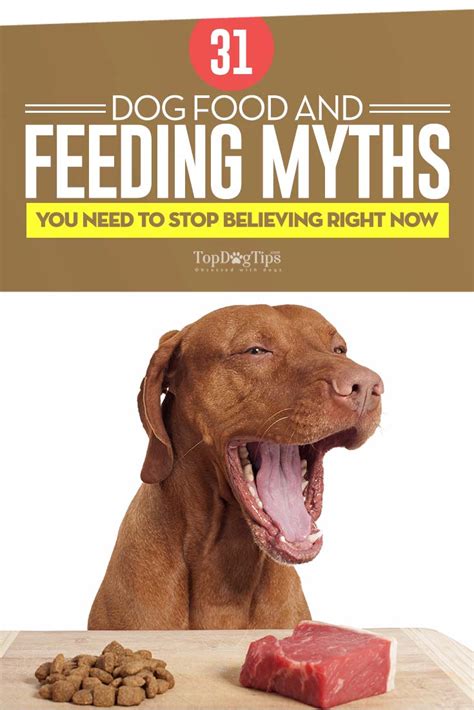Introduction
Dog owners are constantly bombarded with information about what their furry friends should and shouldn’t eat. With so much conflicting advice out there, it can be difficult to know what to believe. To help you sort through the facts and fiction, we’ve debunked five of the most common dog food and nutrition myths.

Myth 1: All dog foods are created equal
Fact: There is a wide range of dog food brands and formulations available, and not all of them are created equal. Some foods are made with higher-quality ingredients than others, and some are specifically designed to meet the needs of different breeds or life stages. When choosing a dog food, it’s important to read the ingredient list carefully and choose a food that is appropriate for your dog’s individual needs.
Myth 2: Dogs need to eat meat to be healthy
Fact: While meat is a good source of protein for dogs, it is not the only source. Dogs can also get protein from other sources, such as plants, eggs, and dairy products. In fact, some dogs may actually be allergic to meat. If you’re not sure whether your dog is getting enough protein, talk to your veterinarian.
Myth 3: Dry food is better for dogs than wet food
Fact: Dry food and wet food are both good options for dogs, and the best choice for your dog will depend on their individual needs. Dry food is typically more affordable and convenient, while wet food is more palatable and may be easier for dogs to digest. If you’re not sure which type of food is best for your dog, talk to your veterinarian.
Myth 4: Dogs should not eat human food
Fact: While there are some human foods that are dangerous for dogs, such as chocolate and onions, there are also many human foods that are perfectly safe for dogs to eat. In fact, some human foods, such as fruits and vegetables, can be a healthy addition to your dog’s diet. If you’re not sure whether a particular human food is safe for your dog, talk to your veterinarian.
Myth 5: Homemade dog food is always healthier than commercial dog food
Fact: Homemade dog food can be a healthy option for dogs, but it’s important to make sure that it is balanced and complete. Commercial dog foods are formulated to meet the nutritional needs of dogs, and they are typically more consistent in quality than homemade dog food. If you’re considering making your own dog food, be sure to do your research and talk to your veterinarian to make sure that you are providing your dog with a healthy diet.
Conclusion
There are a lot of myths and misinformation out there about dog food and nutrition. By debunking these myths, we can help you make informed decisions about what to feed your furry friend. Remember, the best diet for your dog is one that is balanced, complete, and meets their individual needs.





















